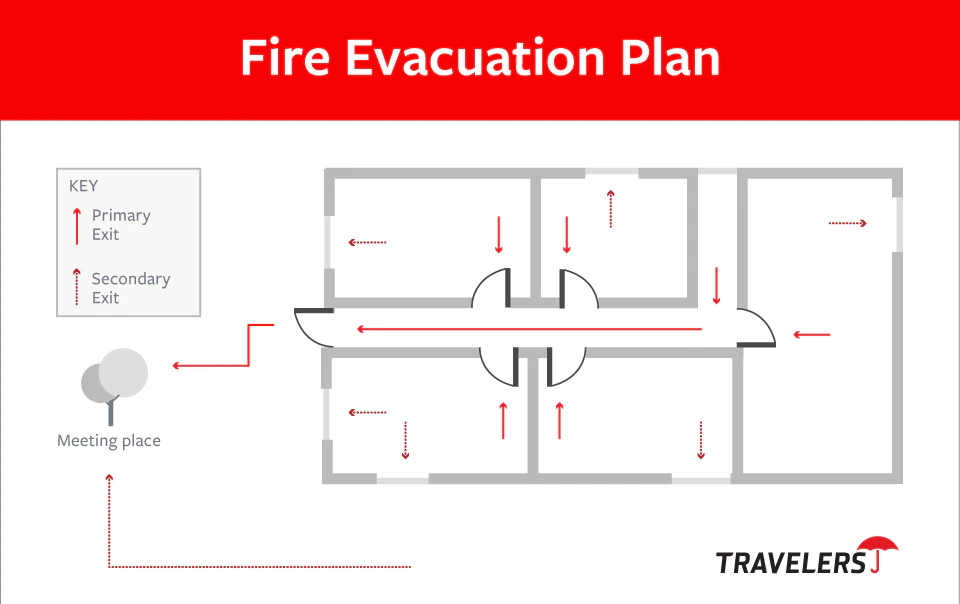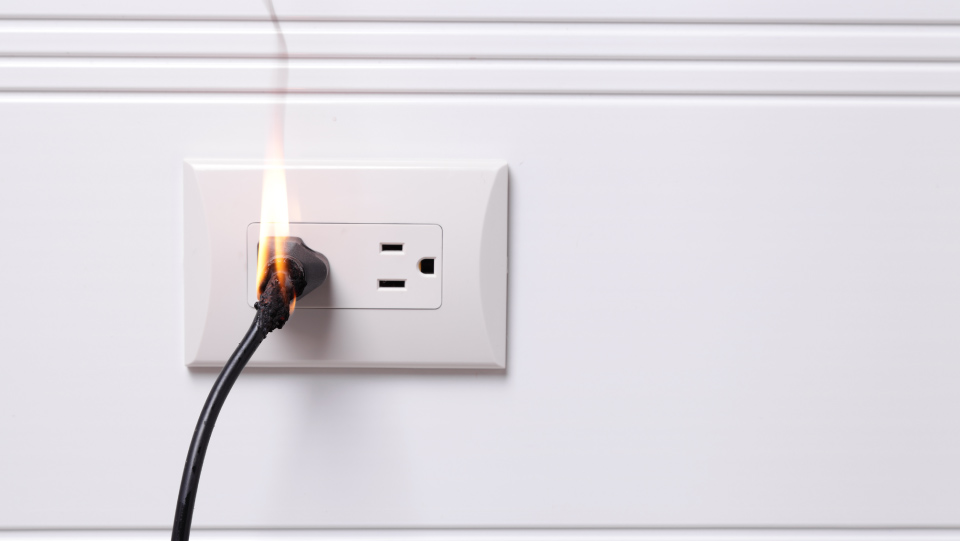How to Create a Fire Evacuation Plan

The last thing most of us expect in the safety of our own homes is an unforeseen and extreme event like a house fire. We see events like this on TV or hear about them third person and think it can never happen to us. In fact, these types of events are more common than you may think, as there were 365,500 house fires in 2015,1 according to the National Fire Protection Association.
If a fire does occur, a few seconds can make a big difference to help you and your family escape swiftly and safely. These tips can help you create a house fire evacuation plan:
- Plan for everyone. Take into account the special needs of everyone in your household, including young children and elderly family members who may not be very mobile. Children don’t always wake when a smoke alarm sounds. Make sure someone is assigned to help them, and choose a backup person in case the assigned person is away at the time of the fire.
- Find two ways out. Visit each room of your house and find two ways out, including windows and doors. Make sure all escape routes open easily so you can get outside, and install emergency release devices on any security bars on doors or windows.
- Involve children in planning. Consider having your children help create a fire evacuation plan.2 Draw a map of the home and have children mark two exit routes and the locations of smoke detectors.
- Choose a meeting spot. Decide on a meeting place outside, such as a neighbor’s house, mailbox or stop sign. It should be in the front of the house so emergency responders can see you when they arrive. Agree not to go back into the house after you leave.
- Check smoke alarms. Check that smoke detectors are properly placed and working. The National Fire Protection Association recommends installing them in every sleeping room, outside each sleeping room and on every level of the home.3
- Be visible. Make sure that your house number can be seen quickly from the street by emergency responders.
- Respond quickly. Make sure everyone knows that if the smoke alarm sounds, he or she needs to get out immediately.
- Have a backup plan. If the planned exit routes are blocked and it’s not possible to leave the house, close all doors between you and the fire. Place a towel under the door and go to an exterior-facing window. Call the fire department to report your location.
- Share with everyone. Go over the plan with everyone who lives in the house and with visitors and overnight guests.
- Practice regularly. Practice and review the plan regularly (at least once a year).
With a smart and well-thought-out plan in place, you can be one step ahead of the unexpected when you may not have the time or ability to think things through.

Sources:
1 http://www.nfpa.org/news-and-research/fire-statistics-and-reports/fire-statistics/fires-by-property-type/residential/home-fires
2 http://www.nfpa.org/~/media/files/public-education/by-topic/escape/escape_plan.pdf?la=en
3 http://www.nfpa.org/public-education/by-topic/safety-in-the-home/escape-planning/basic-fire-escape-planning



